
Amidst the rising plumes of desert dust and the roar of artillery, high-ranking U.S. military officials and their African allies gathered to witness a show of combined force at African Lion, the largest annual joint military exercise on the African continent.

The exercise, which concluded in Morocco, saw roughly 8,100 military forces from about three dozen countries maneuver across Tunisia, Ghana, Senegal, and Morocco, facing the challenges of volatile regions head-on.

This year’s African Lion marked its 20-year anniversary, underscoring the deepening military partnerships between the U.S. and African nations since 2004.

Gen. Michael Langley, the head of the United States’ Africa Command, noted the growth of the exercise not only in participant numbers but also in training scope, which now extends beyond mere security operations.

The exercises comprised of live-fire demonstrations and simulations on how to set up beachheads to defend the Atlantic coastline, signaling preparedness for potential invasions.

With F-16 pilots soaring into formation, the U.S. and its allies showed a formidable front, amidst the very real backdrop of rising terrorism and political instability that has seen military officers in Mali, Burkina Faso, and Niger seize power from democratically elected governments.
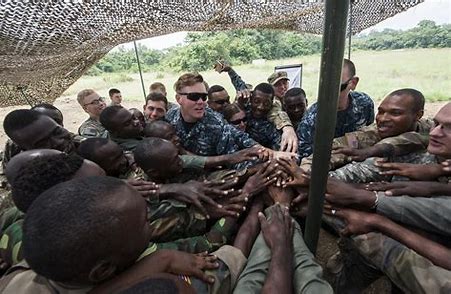
The United Nations has named Africa the “global epicenter for terrorism,” with fatalities linked to extremist groups surging in the Sahel, a region plagued by violence and coups. Data from the Armed Conflict Location & Event Data Project has painted a grim picture of more than 17,000 people killed by militants across three countries from 2021 to 2024.

While the U.S. remains steadfast in its strategy of combining weapons assistance and intelligence sharing with initiatives to bolster civilian populations and strengthen institutions, it faces stiff competition. The geopolitical battlefield has seen the resurgence of Africa as Western influence wanes.
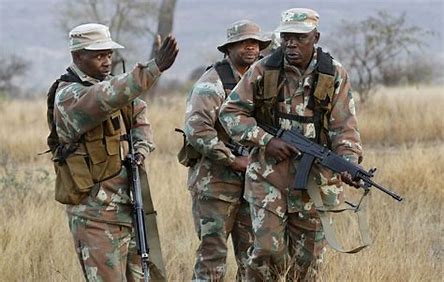
The U.S. military showcased its capabilities in African Lion, with tanks and bombers accompanied by operations in field hospitals, medical evacuations, and humanitarian assistance.

Col. Kelley Togiola, a command surgeon, highlighted the importance of these relationships, saying, “It’s important that we not only be associated with kicking down doors… In times of crises, those relationships matter.”
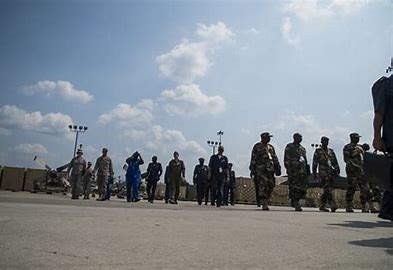
Yet, this whole-of-government approach contrasts with the offerings of Africa Corps, the successor of the Russian state-funded private military company Wagner, criticized for its role in the rise to power of military officers post-coups in Guinea and Niger. Cameron Hudson, an Africa expert, commented on the impact of U.S. security assistance, suggesting it may reinforce problematic power dynamics that undermine civilian democratic rule.
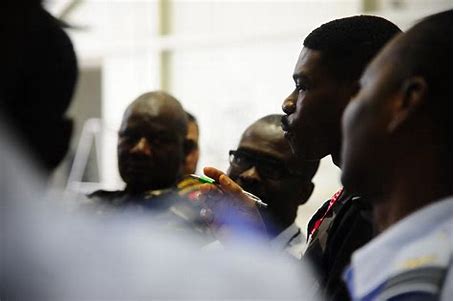
Despite the challenges of maintaining partnerships with countries such as Niger and Chad, who have turned to Russian trainers and paramilitaries, U.S. military officials are determined to work with nations receiving assistance from geopolitical rivals. However, U.S. law restricts aid to governments deposed in coups, complicating the narrative of equal partnership and noninterference.
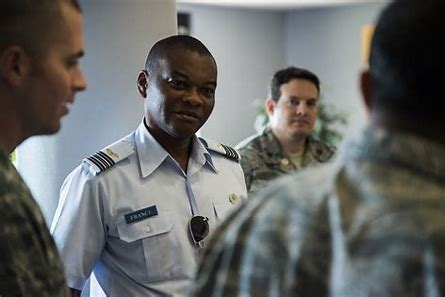
Rachid El Houdaigui, a senior fellow at the Policy Center for the New South, shed light on the aspirations of youth in West African countries seeking to forge new political identities and grow skeptical of the West after enduring insecurity. “African states consider variety favorable. It allows them to choose and gives them many possibilities,” he said.
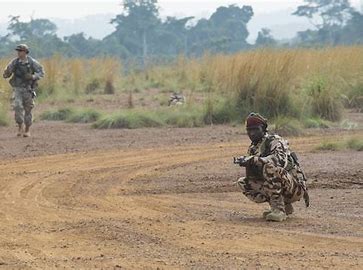
As African Lion wrapped up, the U.S. military affirmed its commitment to facing both the threat of extremism and the strategic game of chess against ‘malign’ Russian influence.
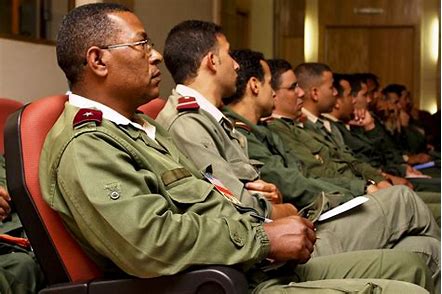
But the question remains: Can military might and strategic partnerships win against the complex political and social challenges bubbling under the surface in Africa? The global epicenter for terrorism still faces an uncertain future, with external powers vying for influence and internal turmoil threatening stability.
Relevant articles:
– US military completes major exercise in Africa and works to deepen partnerships, AP News
– US Military Completes Major Exercise in Africa and Works to Deepen Partnerships, Military.com
